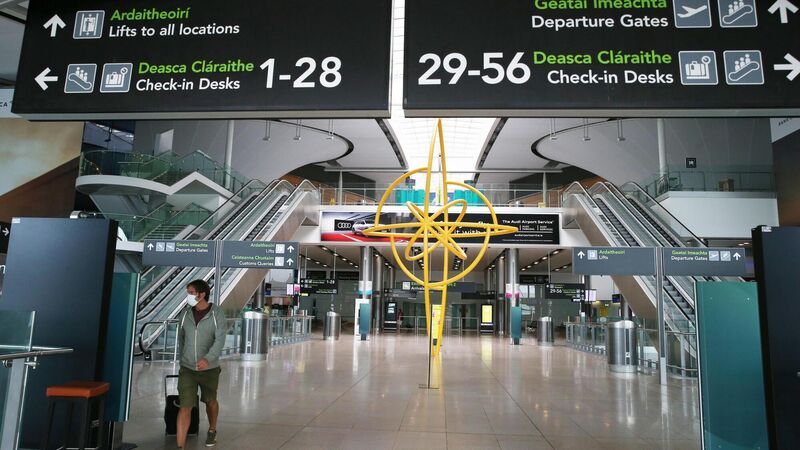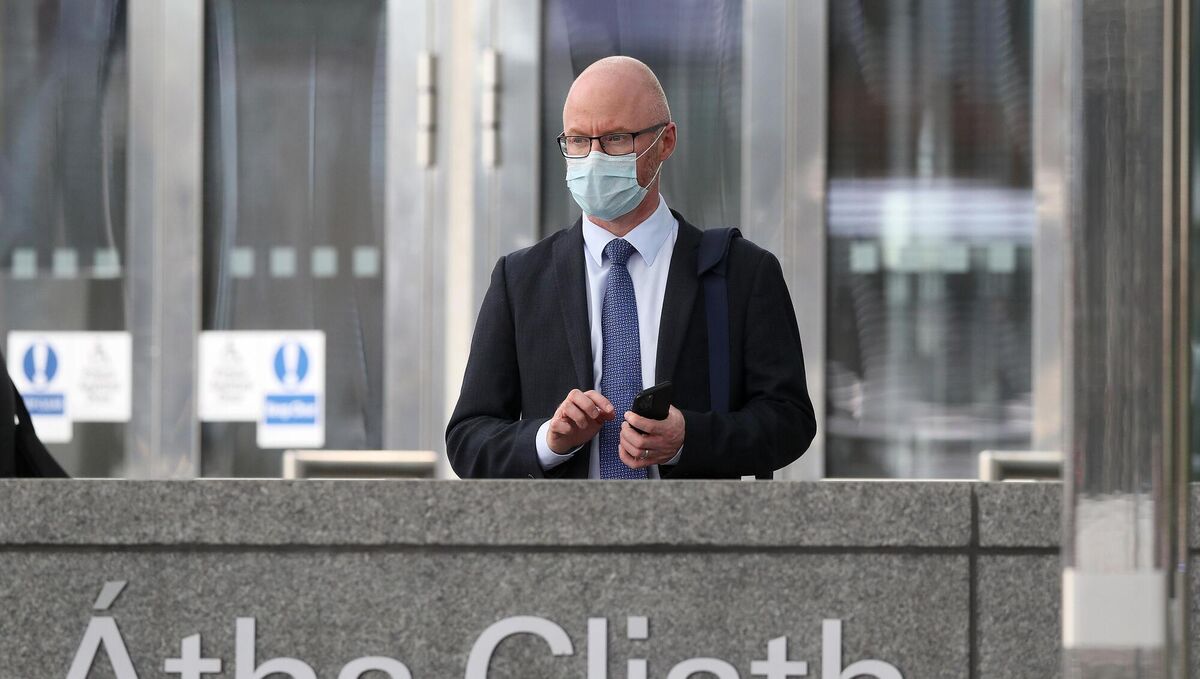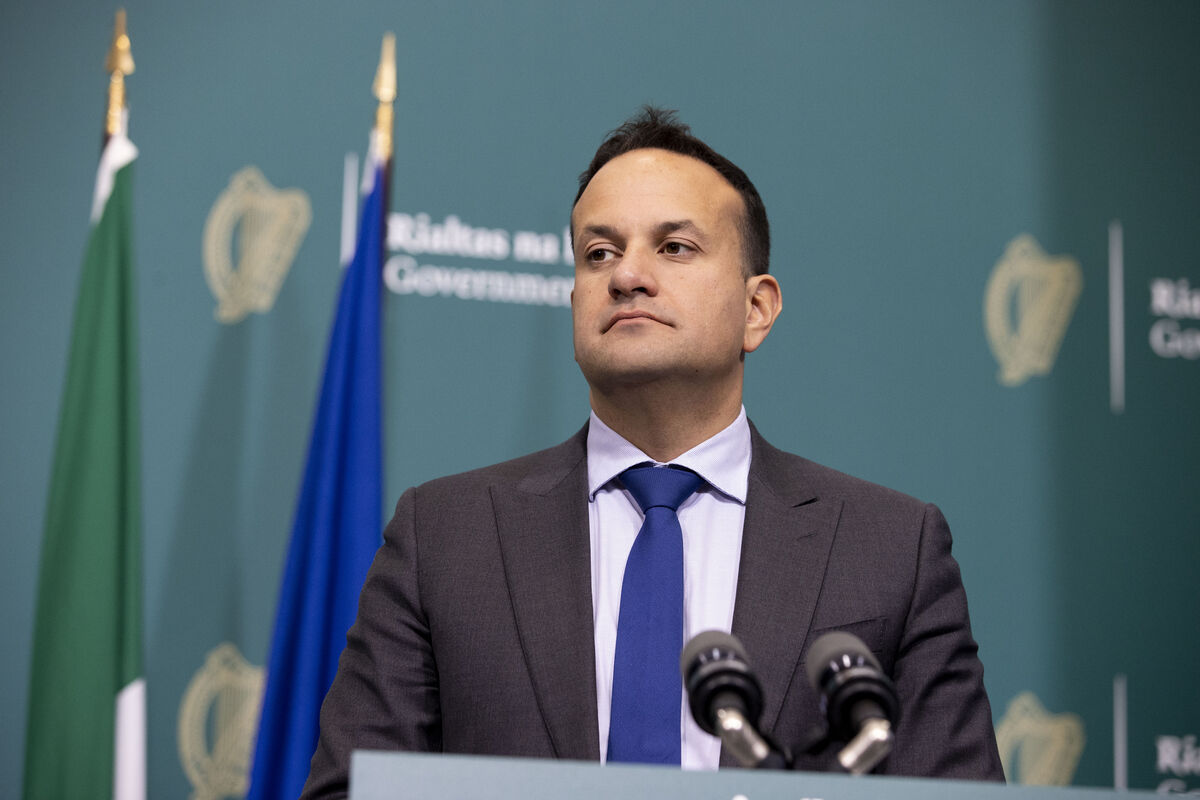Donnelly clarifies traveller isolation rules and warns of clamp down on holidaymakers

The Government would look at introducing this power if people continued to go on holidays despite the fine, Stephen Donnelly added.
The health minister says people who come to Ireland from abroad to shared accommodation should isolate in their rooms, but the law can only tell them to stay at home.
Stephen Donnelly said the public health advice was that those who came into Ireland should stay in their room away from anyone they had not travelled with.
However, he said, the regulations, expected to be signed in coming days, "do not extend into the home".
The restrictions depended on people's living situation but that those in shared accommodation should stay in their rooms as much as possible, he added.
"If you're a family coming home, you are already mixing anyway, so you can continue to mix in the home. Obviously, if you live alone, you can use your whole home," he told the on Newstalk.
Gardaí do not have the power to arrest potential holidaymakers and send them home, he said, but he said guards can fine people €500.
The Government would look at introducing this power if people continued to go on holidays despite the fine, he added.
"If this kind of thing does begin to happen, given everything this country has gone through ... if people think that they can just say 'advice be damned, I don't care. I'm going away', then I don't care if people are willing to pay the fine, I can assure you government will look at that and we will look at what powers are necessary to deal with that.
"Because from my perspective, and I'm sure from your perspective and your listeners' perspective, that is not okay."
Mr Donnelly said the situation at nursing homes was "heartbreaking" and "awful".

However, he did not feel the assertion that the Government could have done more to protect older people was fair.
"You have no idea how hard people have worked in the nursing homes," he said.
"Staff have done everything that they can. From PPE to testing to working so hard.
Mr Donnelly said serial PCR testing had been taking place in nursing homes on "either end of the week", similar to the public health guidance around those coming into Ireland.
"On rapid testing, I have two pieces of good news. The first is that two tests have been validated for use.
"The HSE has bought and distributed half a million of those to healthcare workers. The second is that I've set up an expert group chaired by Professor Mark Ferguson, the country's chief scientific officer, on the expanded use of those."
On vaccines, Mr Donnelly said the National Immunisation Advisory Committee (NIAC) was working with the HSE to determine whether the AstraZeneca vaccine should be given to over 65s when it becomes available.
The Tanaiste appeared to offer different advice on quarantine from Minister Donnelly for those who share homes when returning from international travel.
When asked if a traveller could socialise with a flatmate who could then go to essential work, Mr Varadkar said: "Yeah, you could, bear in mind, the hierarchy risk at the moment.
"So at the moment, if you're somebody who actually has tested positive, at the moment you're required to self-isolate, but if you're a close contact, you're required to restrict your movement so this is the equivalent of somebody who's close contact."
A government spokesman clarified to the Irish Examiner, that if you are coming from high risk/variant countries, you are subject to a system of home quarantining at first, as hotels for mandatory quarantine are not ready, and travellers should isolate in their room where possible.
If a traveller is coming from non-high-risk country, you can mix with household while in quarantine.

Tánaiste Leo Varadkar has rejected reports he was concerned about the progress on the new rules for mandatory quarantine.
The Attorney General over the last few days confirmed that primary legislation will be required for both when it comes to people coming from those high risk countries as well as people who aren't.
"I would be afraid to live in a country that could detain anyone for 14 days against their will, without passing the law, so the fact that requires primary legislation is not a surprise to me anyway. Given our constitution and our human rights," Mr Varadkar said.
"We only made a policy decision last week, as to do what we're going to do in terms of mandatory and home quarantine.
"If you look back at the interviews that I did last week, I made it very clear that would take a few weeks to operationalize, and then we would need primary and secondary legislation so there's no surprise in that regard.
"What I am keen to see is momentum, that we do put these new arrangements in place over the course of the next couple of weeks, because the time we're going to need the most impact is in a few weeks time, when we hope the number of cases will be low and that's where the risk of re-importation or receding is a greater one, Mr Varadkar made the point that of Tuesday's 800 positive cases, "none or a handful" were related to international travel.
"But if we get down to the point, sometime in March or April, when we get new cases down to you know 15 or 20 or 10 or whatever, it's really at that point that the risk of re-importation becomes a major risk, as opposed to a risk and we need to make sure that we have all the arrangements in place "










